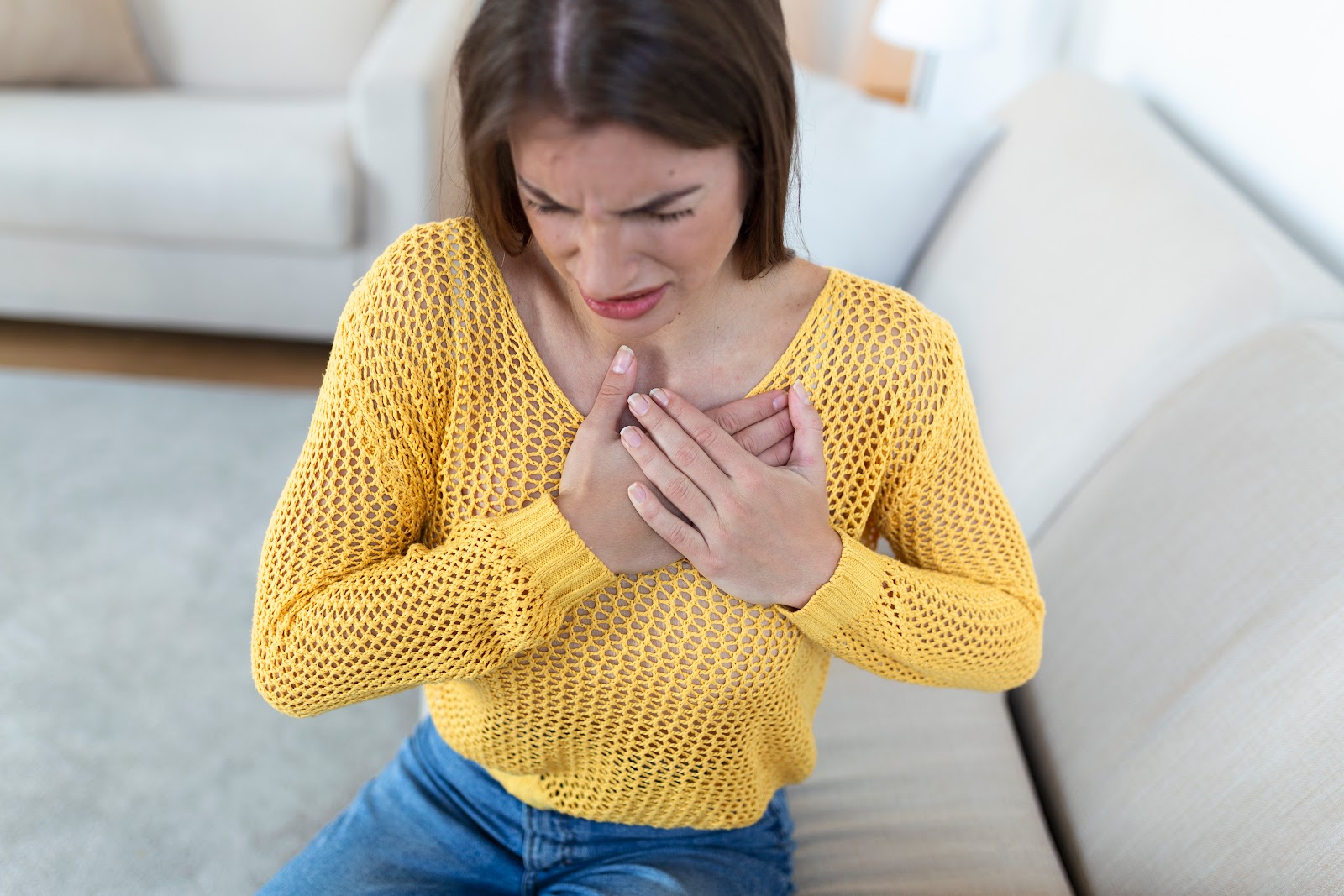When we look into one of the significant causes of mortality around the globe, it is no surprise that heart diseases rank among the top. A hectic daily schedule, overuse of technology, poor quality of life, and work stress, are all elements that can cause heart disease. In earlier times, when people weren’t dependent on technology and preferred a healthy lifestyle with a healthy diet and regular exercise, heart attacks were hardly noticed. The changing lifestyle due to technology dependence instead of manual work has made people more ignorant of health diseases. Studies show that cardiovascular diseases are common in men and women and are rising among teenagers nowadays.
Did you know?
“Every 40 seconds, a heart attack occurs in the United States. About 805,000 Americans suffer a heart attack each year.”
The rising cases show that most men suffer heart attack symptoms differ from those of women. Women usually experience minor chest pain leading to pressure or discomfort for a longer period. From the data, chest pain, neck, jaw, and shoulder pain, shortness of breath, vomiting, and heartburn are among the symptoms of heart disease in women. Heart disease is uncertain, so it's important to recognize symptoms early to avoid major medical issues. So it's better to consult the doctor at the right time.
Here are some of the leading symptoms of cardiac arrest in Women:
Chest Pain:
One of the prominent factors seen during the early symptoms of heart disease in both males and females is chest pain. It may feel like a squeeze or a feeling of fullness, but the pain may be unbearable and last for a long period. Sometimes chest pain is not a noticeable symptom. It can often be felt as pressure or tightness in the body. More chances are that cardiac problems can also happen without chest pains. So always remember, if you feel this kind of symptom, do not take time to consult your doctor immediately.
Trouble breathing
Coughs and sniffles are normal, but respiratory problems that lead to a prolonged period without illness progression are a clear sign of concern. Pay attention to your breathing patterns and take important action before the situation worsens.
Women who have general heart-related risk factors are another vulnerable group. This covers those suffering from diseases and ailments such as:
Diabetes
Blood pressure that is too high
High cholesterol levels
Tobacco consumption
Stomach ache
Another symptom to note down for heart-related issues common among women is stomach pain. In this case, the pain could be misinterpreted as heartburn, a stomach ulcer, or an illness. You may also sense a heaviness in your stomach as if a giant weight has been placed on it. Other signs of a heart attack include extreme or unexpected exhaustion as well as nausea or vomiting. These additional symptoms are more common in women.
Fatigue
Usually, fatigue is unexpected, and it is a clear sign that your heart is not working properly. One of the reasons for fatigue could be due to clogging of the arteries, disrupting blood flow, and sudden blood pressure falls. Likewise, chest discomfort accompanied by sudden fatigue can indicate a heart attack. You may become very tired for no apparent reason. Because you are excessively tired, your normal activities become incredibly strenuous.
Best tips to follow if you undergo these symptoms:
Get the nearest medical help: if you recognize any of the above symptoms, you should consider the scenario a medical emergency and go to a hospital immediately. You should never go to a medical facility alone. You may not show obvious signs of a cardiac event, but it could develop on the road, which could be risky if you are driving.
CPR for cough: CPR is a type of therapy you can learn online. (Cough CPR). An alert, responsive person experiencing a sudden arrhythmia (cardiac arrhythmia) may cough vigorously and repeatedly to maintain blood flow to the brain and remain conscious for a short time until the arrhythmia is resolved.
Use aspirin: If you are still conscious, take a commercial aspirin (325 milligrams) if you have one. Aspirin works by decreasing the blood's ability to clot. Aspirin slows blood clotting and reduces the size of blood clots that form during a heart attack. When EMS arrives, you will be taken to the hospital, where you will be treated for the type of heart attack you are having. Visit a local pharmacy near you and get an aspiring discount of 85% off by using a best RX Discount Card.
Conclusion
A balanced diet and lifestyle are critical to heart health. Alternative therapies and lifestyle changes can help you improve your heart health and reduce your risk of a heart attack. However, checking that your lifestyle changes do not conflict with your medications is important. Take your medications carefully and look at Rx Discount Card for the cheapest prescription medications. So before you try alternative cures, always consult your doctor.





No comments:
Post a Comment